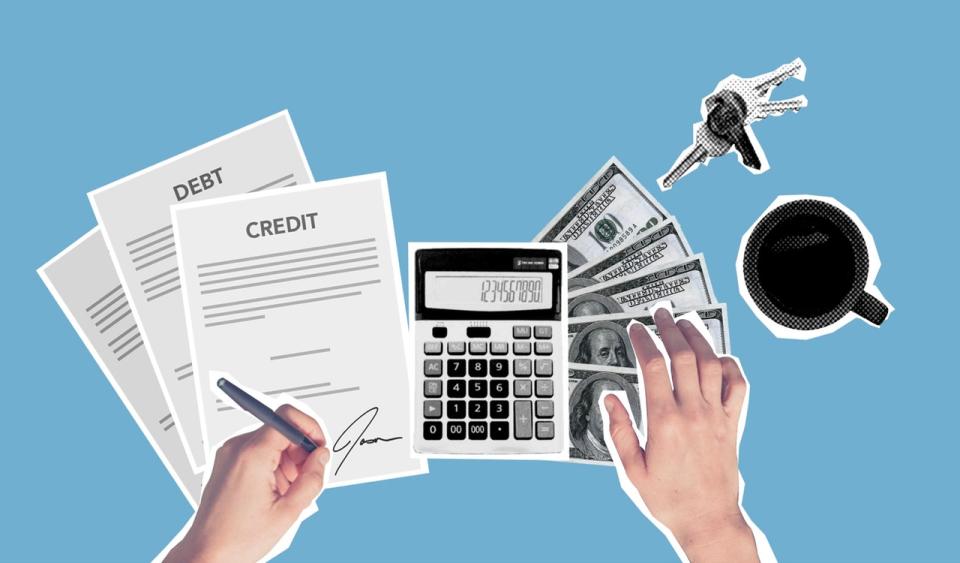Top City Adding the Most Credit Card Debt
We recently compiled a list of the 20 Cities Adding the Most Credit Card Debt and in this article we will talk about the top city that adds the most credit card debt.
Robust Growth and Challenges in the Global Credit Card Market
The global credit card market is experiencing robust growth, driven by the increasing demand for cash alternatives and the availability of affordable credit cards. In 2021, the global credit card market was valued at USD 489.4 billion. By 2032, the market is projected to reach USD 1.2 trillion, growing at a CAGR of 8.8% from 2023 to 2032. The credit card payments market was valued at $524.9 billion in 2022. North America, led by the US, dominated the credit card market in 2021 and is expected to maintain its dominance throughout the forecast period.
In 2020, nearly 47% of American adults, or around 120 million people, had credit card debt. As of 2022, Visa accounted for 52% of the purchase volume on general-purpose credit cards in the US, followed by Mastercard at 24% and American Express at 20%.
2023 saw a rise in the difficulty of credit card debt management for American consumers. The Federal Reserve Bank of New York reports that, compared to other obligations like student or auto loans, 6.36% of credit card debt risks being over 90 days late by Q4 2023. Although rising interest rates have helped credit providers—such as American Express Company and JPMorgan Chase & Co. (NYSE:JPM)—by increasing interest collection and payment volumes, they also put them at greater risk of consumer default.
Companies like Bank of America (NYSE:BAC) and JPMorgan Chase & Co. (NYSE:JPM) have raised their reserves in response. Because of its Card business, JPMorgan recorded an increase in its "net reserve build" in Q1 2024. Similarly, a reserve increase was reported in Bank of America (NYSE:BAC)'s Q1 2024 earnings release; nonetheless, the company's stock price fell 4.9% due to the disclosure. By September 2023, Bank of America (NYSE:BAC), the second-biggest bank in the United States based on deposits, had $1.8 trillion in deposits. During the Q1 2024 earnings call, the bank's CFO, Alastair Borthwick, discussed these advancements and emphasized the tight relationship between customer success and the bank's financial stability. He said:
“Net charge-offs of $1.5 billion increased $306 million from the fourth quarter, driven by continued credit card seasoning and commercial real estate office exposures as swift evaluations from current appraisals and resolutions drove higher charge-offs.
The net charge-off ratio was 58 basis points, a 13 basis point increase from the fourth quarter. . . . . Consumer net charge-offs increased $150 million versus the fourth quarter from the flow-through of higher late-stage credit card delinquencies. . . . . We’re encouraged by the trend of delinquencies because the late stage increases slowed and early stage delinquencies improved as well, and that leads us to believe we should begin to see consumer net charge-offs start to level out over the next quarter or so. All of this is still well within our risk appetite and our expectations, and it’s consistent with the normalization of credit we discussed with you in prior calls.”
The use of credit cards has increased dramatically since the 2020 coronavirus lockdowns. U.S. consumer credit per capita in Q4 2020 was $2,970, down $1,000 from the year before. But by 2023, the average credit card debt per person had increased to $3,950, demonstrating a robust rebound and rising credit usage among consumers.

Our Methodology
For our methodology, we have ranked the cities adding the most credit card debt based on the total credit card debt in these cities in 2023. For the accuracy of data, we relied on the U.S. Census Bureau, Federal Reserve, and TransUnion.
1. New York, NY
Total Credit Card Debt: $63,069,492,571
New York City tops the list for being the city adding the most credit card debt. As of 2022, Credit Karma members living in New York City held a combined total credit card debt of $3.23 billion, with an average credit card balance of $7,600 per individual. This figure is significantly higher than the national average of $6,404. 5.9% of New York state cardholders have at least one maxed-out credit card. The credit card utilization rate among New York state cardholders is 38.6% which is slightly above the national average of 37.7%
To learn about other cities adding the most credit card debt, you can check out our detailed report 20 Cities Adding the Most Credit Card Debt.
At Insider Monkey, we delve into a variety of topics, ranging from the best online ESL courses to business aspects; however, our expertise lies in identifying the top-performing stocks. Currently, Artificial Intelligence (AI) technology stands out as one of the most promising fields. If you are looking for an AI stock that is more promising than NVDA but that trades at less than 5 times its earnings, check out our report about the cheapest AI stock.
READ NEXT: Analyst Sees a New $25 Billion "Opportunity" for NVIDIA and Jim Cramer is Recommending These 10 Stocks in June.
Disclosure. None: This article is originally published on Insider Monkey.

 Yahoo Finance
Yahoo Finance 